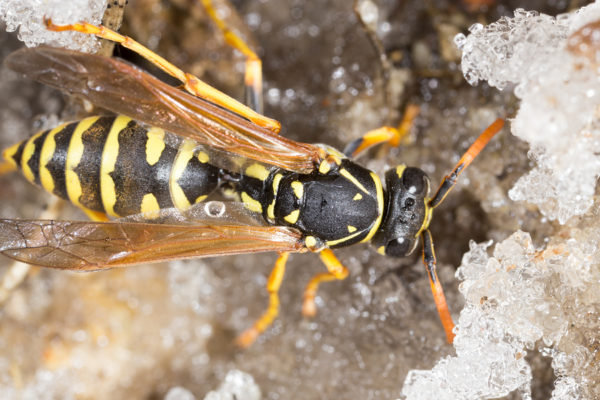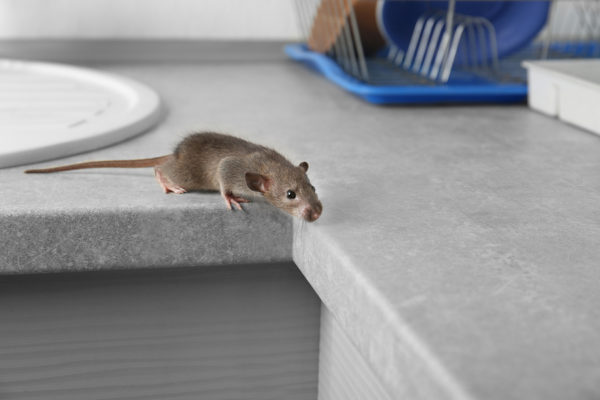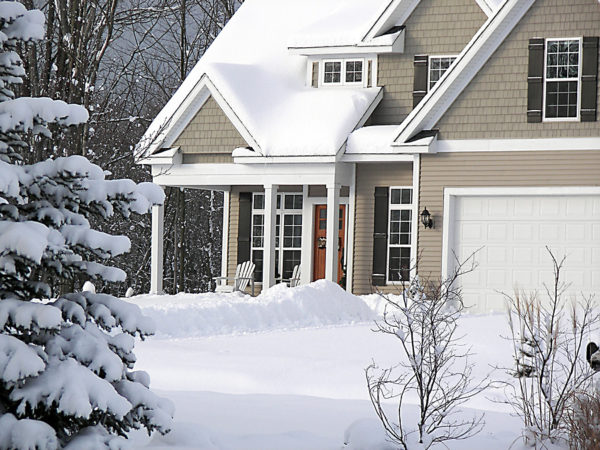READY TO GET STARTED?
REQUEST A FREE ESTIMATE
Fill out the form below or call (888) 466-7849 for a free, no-obligation estimate.

It’s the middle of December and you are cuddled up with your favorite book and a warm blanket. Unfortunately, this peaceful moment is interrupted by a buzzing sound followed by the sighting of a wasp! And while you might be thinking “This is odd! It’s winter!”, this occurrence is quite common.
As fall starts, paper wasps will start to die off. However, there are select females who will search for a safe place to overwinter. These safe places can be inside chimneys, behind the siding of your home, and around windows and door frames.
Since winter weather in the south is very unpredictable, bouncing from 20 degrees one week to 72 the next, that random warm weather can trigger the wasps to become active and search for exits to begin making nests; thus the cause of wasp sightings in the month of December. How can you prevent these wasps from overwintering?
If you spot a wasp in your home, don’t hit the panic button. In the winter months, wasps tend to move slower than normal and your licensed pest control professional can remove the nests with ease.

No matter what season it is, pests will always be in search of 2 things: shelter and food. One place that provides both of these is your home! Pests are influenced by the seasons so their threats change as the weather changes. Different seasons bring different pests in varying stages of their life cycles. It is important to know seasonal pest patterns for your area to make the proper preparations for your home. What can you expect as each season changes throughout the year?
Winter is a time of hibernation and survival for pests. Colder weather triggers a need for most pests to find shelter; some seek shelter outdoors while others will seek shelter indoors. Bees, wasps, and other stinging insects will seek out places in logs or in the eaves of your home. Ants will seek shelter in their nesting sites. Overwintering pests like cockroaches, spiders, and rodents will seek shelter indoors, sometimes in our homes. The key to prevention of winter pests is to prepare your home in the fall.
Spring is a time of awakening and mating for most pests. As the weather warms, pests will emerge from their winter shelters and increase their activity. Pests that hibernate over winter will awaken from their dormant states. The spring rains will drive ants from their nesting sites in search of higher ground. Spring also marks the beginning of swarming season for termites. Most pests will move outdoors in the spring in search of mates.
Summer brings the height of backyard pests that put a damper on our outdoor fun. While we tend to see fewer pests inside our homes, we do tend to see larger numbers of pests in our yards and other outdoor areas. Mosquitoes are especially active in the summer months because of the moisture from spring and summer rains. Bees, wasps, and other stinging insects are also more active in the summer; their nests can often be found on our near our homes.
Fall is a time of preparation for most pests as they get ready for the harsh winter months. Common fall pests include ladybugs, box elders, and spiders. These pests will often invade your home at this time of the year in search of shelter for the coming months. Fall is a good time to prepare your home for those overwintering pests seeking shelter from the winter weather also, like cockroaches and rodents.
No matter the season, there are steps you can take to protect your home from pests year-round:
If these steps aren’t enough or if you already have a pest problem, call a pest control professional who can come and give your home a thorough inspection and help you with a treatment and prevention plan.

As the warm weather winds down and winter settles in, most of us will breathe a sigh of relief that we survived another season of creepy crawlers. Don’t relax just yet! Just because the weather has turned colder doesn’t mean pests have hibernated for the winter. Many pests will make their way into your home in search of shelter, food, and warmth. Mice, cockroaches, and spiders can be found crawling underfoot in the wintertime. These overwintering pests aren’t just a nuisance to have in your home; they can cause significant damage to both your property and your health. Rodents are known to carry Salmonella and Hantavirus and can chew through cables and electrical wires, increasing the risk of fires. Some spiders like the brown recluse and the black widow have bites that can be a serious threat to humans. Cockroaches are known to trigger allergies and asthma. Winter brings ice, snow, and wind, causing enough stress on your home without the threat of pest infestations. So what can you do to reduce this stress and get rid of the last of these creepy crawlers? Check out these winter pest prevention tips to help you have a stress free winter.

As the weather continues to bounce between a crisp 32° and a breezy 65°, you may have noticed a major decrease in pest activity. “Well, that’s it! No more bugs. Let’s cancel the pest service!” This, however, could prove to be a costly mistake. Winter pest control is an essential component in protection and prevention of pest infestations.
While your home is filled with holiday joy and warmth during the winter, pests will take this time to seek refuge indoors. Take the time to set up an inspection with your pest control professional to make a personalized plan for prevention and protection of your home. This could be the difference between total home protection year-round or fighting against pests once warmer weather returns.